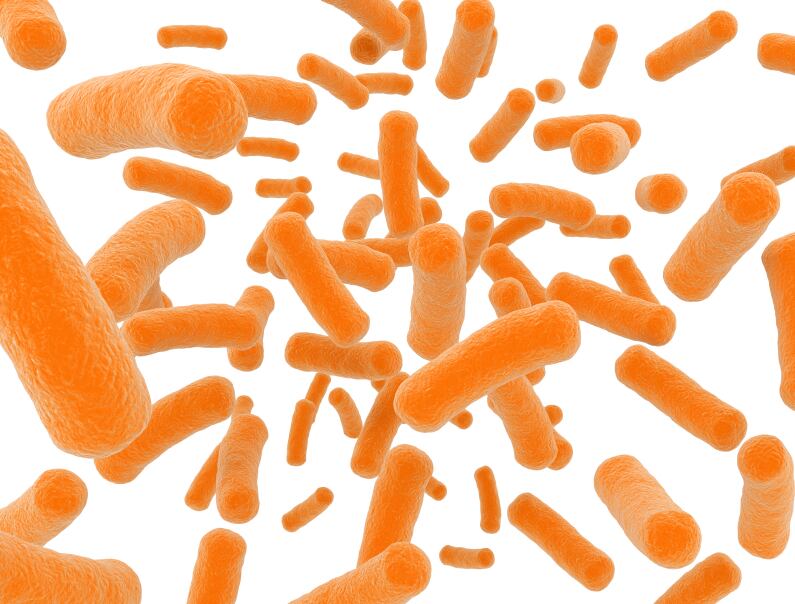Investigations into two popular forms of weight reducing surgery — Roux-en-Y gastric bypass (RYGB) and laparoscopic adjustable gastric banding (LAGB) — found that the more aggressive procedure RYGB produces a microbial community associated with a healthy gut.
"One of the key findings of the paper confirms what we had already observed in earlier research. RYGB gastric bypass had a huge effect on the microbial community structure," said Dr Rosa Krajmalnik Brown, associate professor at the Swette Center for Environmental Biotechnology at Arizona State University.
“This fact may have profound implications for both the understanding and management of obesity.”
The role of gut microbiota on host energy regulation and metabolism is one put forward on a regular basis.
Altered microbial metabolism in obese hosts may contribute to weight gain. In addition, post-RYGB observations in humans and animals resulted in significantly different microbiome structures than obese or lean subjects.
Additionally, faecal transplants from post-RYGB mice/humans to germ-free mice resulted in weight loss and decreased the size of adipose tissue.
‘Surgeries have different microbiome outcomes’

"This is one of the first studies to show that anatomically different surgeries with different success rates have different microbiome and microbiome-related outcomes," said lead author Dr Zehra Esra Ilhan, who is also a postdoctoral research associate at Arizona State University.
“Further, the results indicate that correction of obesity tends to improve related metabolic conditions, including diabetes and high cholesterol.”
The study compared gut microbial ecology in four groups: participants who had previously undergone RYGB (sample size- 24) or LAGB (14) surgeries, healthy normal weight (NW) (10) and morbidly obese controls who were scheduled to undergo bariatric surgery (PreB-Ob) (15).
Importantly, PreB-Ob participants were on a recommended weight loss diet.
Faecal samples were collected, as was information from four-day prospective food diaries and food frequency questionnaires. DNA samples were also collected from the subjects.
Faecal analysis showed that RYGB microbiomes were significantly different from those from NW, LAGB and PreB-Ob.
Microbiome differences between RYGB and PreB-Ob populations were similar in their metabolomes - a combination of metabolites produced by the various microbes.
The team added that diversity was higher in RYGB compared with LAGB, possibly because of an increase in the abundance of facultative anaerobic, bile-tolerant and acid-sensible microorganisms in the RYGB group.
As a result of lower gastric acid exposure, species from the oral cavity, such as Escherichia, Veillonella and Streptococcus, were observed in greater number in the RYGB group.
Their populations positively correlated with percent excess weight loss.
Probiotic to replace surgery?
"These new data on microbial community structure and function significantly expand our knowledge on how the microbiome is associated with weight loss following bariatric surgery," said Dr John DiBaise, a gastroenterologist at Mayo Clinic, Scottsdale and co-author of the study.
The team went on to outline RYGB’s methods of success, principally how it alters the physiology of the gut, allowing microbes previously unable to survive conditions in the obese gut to flourish in their surgically-modified surroundings.
"One of the things we observe from the literature is that the oral microbiome community composition is very similar to the colon microbiome composition after bariatric surgery," Dr Ilhan said.
"You're giving new microbes a chance to make it. Most of the species are acid sensitive, which supports the idea that changes in stomach pH levels may permit these microbes to survive and make it to the colon."
The findings may also go some way in explaining why patients are not successful and regain the weight they have lost post-surgery.
One explanation might be the lack of favorable microbes necessary for permanent weight loss.
"A probiotic that would replace surgery would be great,“ said Dr Ilhan.
“Another positive outcome would be if we can find a microbial biomarker that will identify the best candidates for surgery and sustained weight loss."
Source: ISME Journal
Published online ahead of print: doi: 10.1038/ismej.2017.71
“Distinctive microbiomes and metabolites linked with weight loss after gastric bypass, but not gastric banding.”
Authors: Zehra Esra Ilhan et al.
